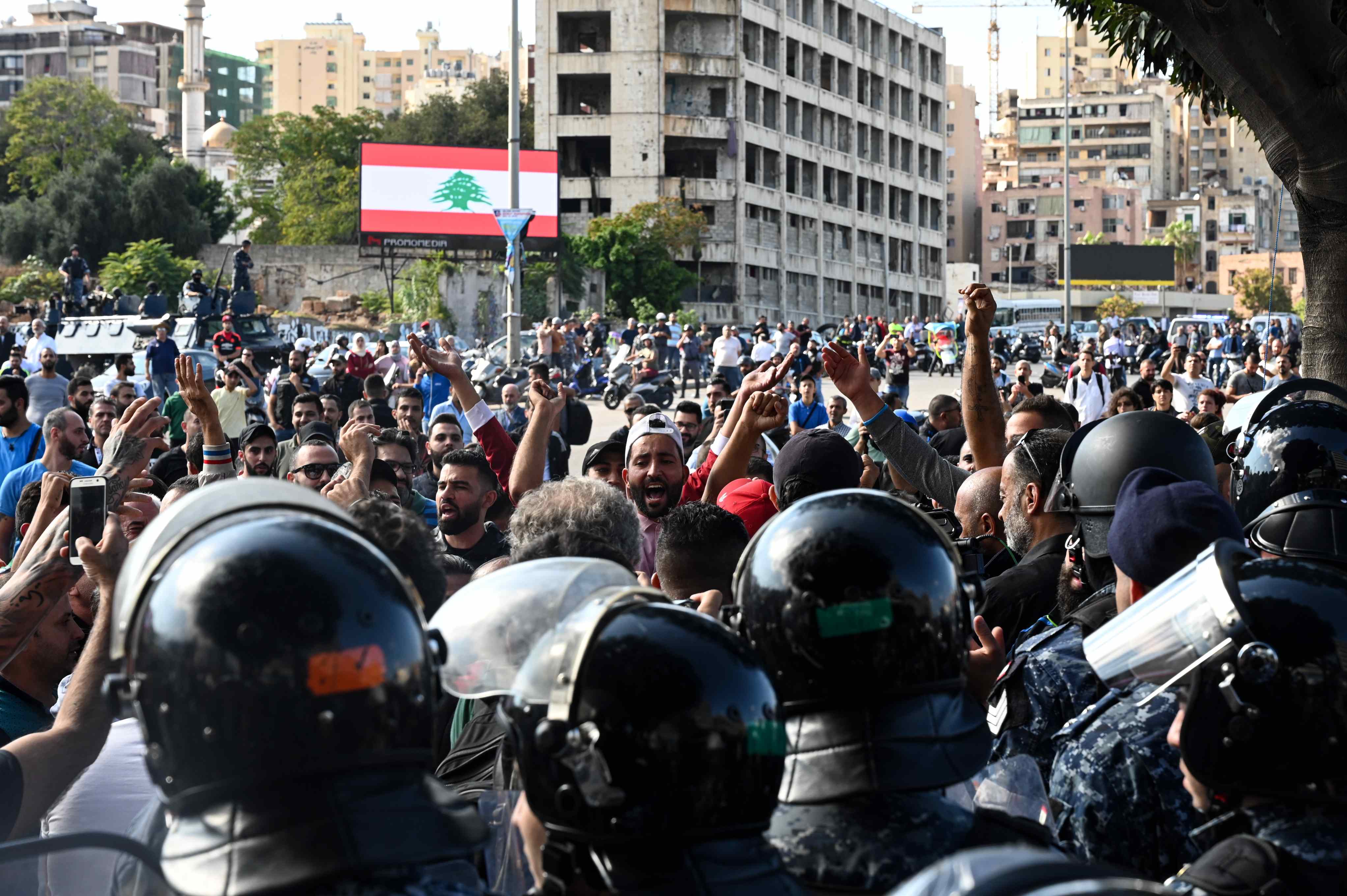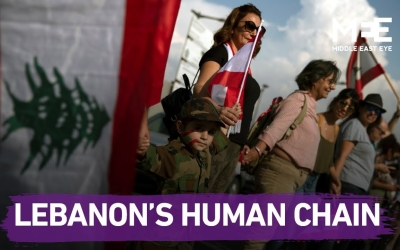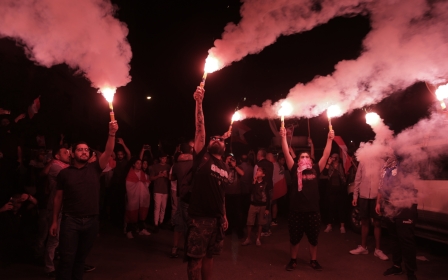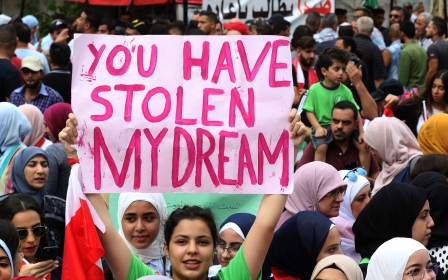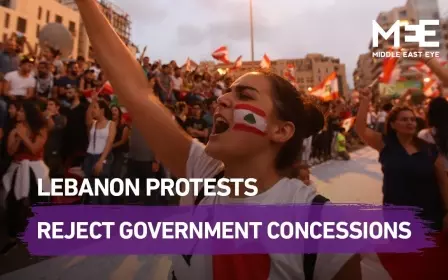Lebanese prime minister resigns as clashes break out at Beirut protest
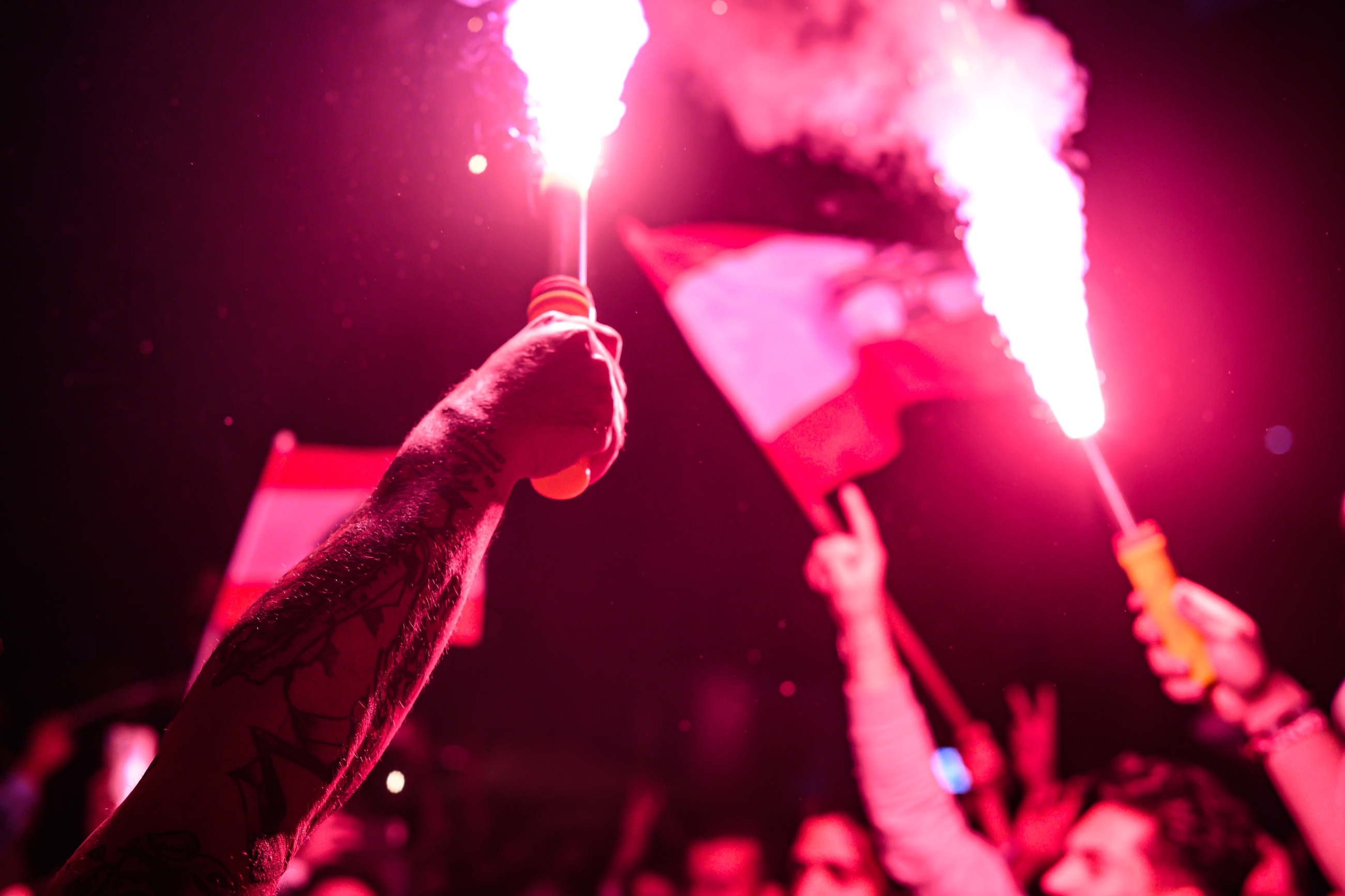
Prime Minister Saad Hariri announced on Tuesday he was resigning following two weeks of demonstrations against his government and widespread corruption in the country.
"No one is bigger than his country," Hariri said, urging Lebanese to preserve stability and security.
Lebanon has been paralysed by 13 days of protests that have seen hundreds of thousands of people mass across the country and roadblocks erected on key routes.
The instability has also prompted banks - which prop up the country's moribund economy - to remain closed, increasing fear of a currency devaluation.
Last week, Hariri promised a series of reforms in an attempt to placate protesters who spontaneously hit the streets to rail against a series of taxes that would have hit the pockets of the average Lebanese.
In his speech on Tuesday, Hariri said he had come to "a dead end".
"It is time for us to have a big shock to face the crisis. I am going to the Baabda [presidential] palace to present the resignation of the government. To all partners in political life, our responsibility today is how we protect Lebanon and revive its economy."
At the news of his resignation, jubilation spread across the crowds of protesters, who hugged, sang and beat drums.
"I feel pride and joy," Nawal al-Mayouli, 72, told Middle East Eye in central Beirut. "In 13 days, we have been able to force a government of corrupt and absolutely incompetent people to resign."
Maylouli said the recent protest movement had brought all Lebanese together, "without consideration for religion, geography, age or class".
The mood in central Beirut was markedly different than even an hour before, when supporters of the Hezbollah and Amal parties violently attacked demonstrators, storming a protest site on the strategic Ring Bridge that connects the capital's downtown to its west.
“I saw people charging towards the ring and the army moved forward to stop them. The army was very responsive. They instructed us to stand behind them so that we can protect you,” Riman Jurdak, one of the protesters, told MEE.
'In 13 days, we have been able to force a government of corrupt and absolutely incompetent people to resign'
- Nawal al-Mayouli, protester
Hezbollah and Amal have previously attempted to intimidate protesters and alleged that the demonstrations, which have sprung up even in their strongholds of Nabatiyeh, Baalbek and Sour (Tyre), are being stoked by foreign influence.
Video footage showed assailants, many of whom told local media they were supporters of Hezbollah and the Amal Movement, kicking and beating the demonstrators, and throwing rocks and sticks at them and the police.
Riot police and the Lebanese army deployed to separate the residents from the protesters.
“They will not scare us. The ring road will not be open. As much as they try, we will not open it. Let them attack us,” a young man told MEE, refusing to give his name.
A while later, supporters of Amal and Hezbollah tore down and burnt the tent encampments raised by protesters in Martyrs' Square and elsewhere in Beirut's downtown, where protests have been ongoing since 17 October.
Outside the Al-Amin Mosque and Azarieh building, Hezbollah and Amal supporters also attacked the protesters, including women. In video footage, the security forces can be seen trying to stop and push back the attackers.
However, observers have also accused the security forces of being at first largely absent and then reticent to protect the demonstrators.
One protester who would only give his name as Mazen told MEE that the anti-riot police did not immediately intervene.
“The attackers were chanting in support of Nabih Berri as they attacked,” Mazen said, in reference to the parliament speaker who is also the head of the Amal Movement.
Ahmed, an Amal supporter, told MEE that he had no problem with people protesting, as long as the roads are cleared and the country can return to normal. "All I want is to feed my family," he said.
The clashes come a day after CNN reported that the governor of Lebanon's Central Bank, Riad Salameh, said that the country was days away from economic collapse if a political solution could not be found.
Hours later, Salameh told Reuters that the CNN story had not reflected what he told the broadcaster.
"I am not saying that we are going to have a collapse in a matter of days. I am saying we need to have a solution in a matter of days to regain confidence and avoid collapse in the future," Salameh said.
Lebanon's banks have been shut for nine working days amid the unprecedented wave of protests across the country. Lenders have said they shut their doors due to safety concerns. Lebanon's banking association said they will remain closed on Wednesday.
Salameh told Reuters the banks would reopen "as soon as the situation calms down. We didn't ask them to close".
Middle East Eye delivers independent and unrivalled coverage and analysis of the Middle East, North Africa and beyond. To learn more about republishing this content and the associated fees, please fill out this form. More about MEE can be found here.



